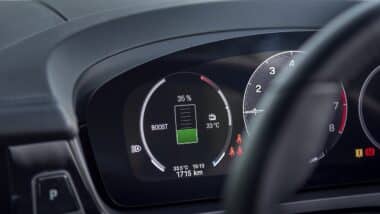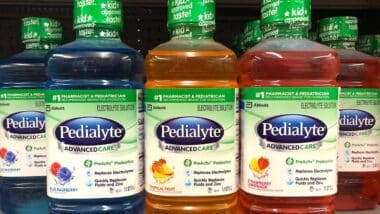
Patients who developed a postoperative infection after bypass surgery may have come into contact with bacteria from a contaminated heater-cooler device.
A heater-cooler device is used during heart surgery to keep organs and blood at the proper temperature throughout the procedure. The bypass process, often used during surgery involving the heart and lungs, mimics the function of the cardiovascular system to pump and oxygenate blood during surgery. This allows surgeons to operate on the heart without jeopardizing the blood flow to other organs in the body, such as the brain.
Since maintaining a healthy body temperature during the bypass process is challenging, a cardiac heater-cooler is often used. The machine uses steam and warm water to heat the blood passing through the system. An estimated 250,000 surgeries a year involve a cardiac heater-cooler.
Contaminated Cardiac Heater-Cooler Devices
Many lawsuits have been filed against the machine’s manufacturers, alleging that the process can contaminate the surgical field with non-tuberculosis mycobacteria (NTM). NTM are a class of natural occurring organisms commonly found in water and soil and typically pose little threat to human health. However, when the bacteria is aerosolized and comes into contact with exposed organs, it can result in a serious postoperative infection.
According to the American Lung Association, a NTM postoperative infection can be asymptomatic but common symptoms include persistent cough, hemoptysis, fatigue, low grade fever, night sweats, and weight loss. Hospitals have recommended that patients be on the look out for these symptoms if they have had open heart surgery during which a cardiac heater-cooler was used.
Although the water in the device does not come into contact with the patient’s blood, using contaminated water can pose a serious risk for patient health. According to the U.S Food and Drug Administration (FDA), “there is potential for contaminated water to enter other parts of the device and aerosolize,” which means the bacteria can be transmitted in the air “through the device’s exhaust vent into the environment and to the patient.” If contaminated water breaches the sterile surgical field, the exposed organs can come into contact with dangerous bacteria, causing a postoperative infection.
Warnings about the possible contamination have been released by both the FDA and the Centers for Disease Control and Prevention (CDC). The FDA estimated that 60% of devices used at hospitals have been linked to deadly infections and may have been in the United States since 2006.
Over the past year, many hospitals have alerted heart surgery patients about possible exposure and encouraged them to watch for symptoms of a possible postoperative infection. Although many hospitals have taken it upon themselves to warn their patients of the potential danger, such action is not required by any federal organization and no recall has been issued.
Postoperative infection treatment often involves a long term antibiotic, but further intervention may also be required depending on the severity of the infection. In some cases, an infection may be so severe that it results in death.
Heater-Cooler Contamination Settlement
In April 2019, heater-cooler manufacturer LivaNova agreed to pay $225 million to resolve claims that patients got sick due to contamination of its 3T Heater-Cooler devices, according to The York Dispatch.
LivaNova has not admitted any wrongdoing by choosing to settle cases against them. Instead, the company’s CEO said that the settlement will remove “ongoing costs” and the risks associated with continuing litigation through a trial. The company will reportedly continue to “vigorously defend the product and company actions in the remaining cases,” according to a press release.
“These were complicated cases and the patients involved with this litigation have difficult medical histories. Protracted litigation was in no one’s interest, as the plaintiffs could benefit from settle proceeds today,” a plaintiff attorney said in a statement.
The settlement will resolve a multidistrict litigation centralized in federal court, a class action lawsuit, and several state lawsuits. In total, the $225 million will resolve about 75 percent of the lawsuits currently pending against LivaNova over its heater-cooler devices.
One of the lawsuits resolve in the settlement was filed by plaintiffs Jack M. and Edward B. in February 2016. The men say they were exposed to a NTM during their bypass surgeries in 2015 , resulting in an infection.
If you or a loved one developed a postoperative infection after undergoing open heart surgery involving bypass and a cardiac heater-cooler, you may be eligible for a cardiac heater-cooler lawsuit. A cardiac heater-cooler lawsuit could help recover compensation for medical expenses, pain and suffering, and more.
Do YOU have a legal claim? Fill out the form on this page now for a free, immediate, and confidential case evaluation. The cardiac heater-cooler attorneys who work with Top Class Actions will contact you if you qualify to let you know if an individual lawsuit or class action lawsuit is best for you. [In general, cardiac heater-cooler lawsuits are filed individually by each plaintiff and are not class actions.] Hurry — statutes of limitations may apply.
ATTORNEY ADVERTISING
Top Class Actions is a Proud Member of the American Bar Association
LEGAL INFORMATION IS NOT LEGAL ADVICE
Top Class Actions Legal Statement
©2008 – 2025 Top Class Actions® LLC
Various Trademarks held by their respective owners
This website is not intended for viewing or usage by European Union citizens.
Get Help – It’s Free
Join a Free Cardiac Heater-Cooler System Class Action Lawsuit Investigation
An attorney will contact you if you qualify to discuss the details of your potential case at no charge to you.
Please Note: If you want to participate in this investigation, it is imperative that you reply to the law firm if they call or email you. Failing to do so may result in you not getting signed up as a client, if you qualify, or getting you dropped as a client.
Email any problems with this form to [email protected].
Oops! We could not locate your form.












